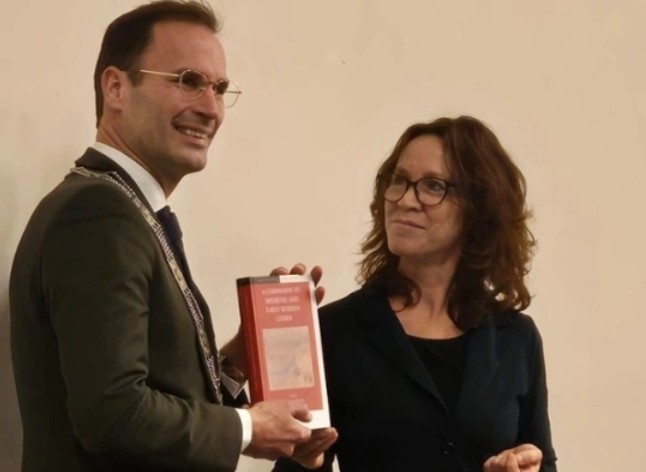History of Inequality and Power (MA)
The master's specialisation History of Inequality and Power investigates how social, political and economic inequalities have been created, maintained and challenged throughout history.
Part of

A top-ranked programme
According to the QS World University Rankings 2025, History at Leiden University is rated 1st in the Netherlands and 18th in the world.
Why study History of Inequality and Power?
How did people in the past negotiate social, economic and political inequalities? How do inequalities emerge, transform, and disappear? In the MA History specialisation History of Inequality and Power, you will learn to find answers to these questions by looking at historical developments around the world from the Middle Ages until today. Understanding historical inequality equips you to better interpret and address current societal issues related to justice and identity.
Focus on different categories of identity and power
You will examine diverse agents—activists, citizens, institutions—and their roles in power structures across different eras and societies. The programme draws on innovative historical approaches that highlight the role of formal institutions and informal networks. Within the programme you will be able to take an intersectional approach and pay attention to different categories of identity and power:
- Gender
- Class
- Ethnicity
- Race
- Religion
- Sexuality
- Age
- Ability/disability
- Citizenship
- Legal status
Learn more about the study programme
Why Leiden University?
- Research-driven teaching: Leiden’s academic environment is rich in interdisciplinary resources, and the teaching is strongly research-driven.
- Unique resources: As a History student you have access to cutting-edge research and archives.
- Partnerships: You also have opportunities for applied learning through partnerships with heritage institutions and NGOs.
- Flexible curriculum: The curriculum’s flexibility allows you to explore topics such as slavery, disease, racism, and legal rights from an intersectional perspective.
- Inclusive and dynamic view of history: The programme's intersectional methodology and attention to marginalised voices distinguishes it from programmes at other universities, offering a more inclusive and dynamic view of history.
Manon van der Heijden
Professor of Comparative Urban History

“Inequality and power are without doubt some of the most pressing issues of our time. To truly understand inequality—whether in terms of gender, class, ethnicity, religion, justice, or health—we must examine its roots. In the MA History of Inequality and Power, we explore the long-term patterns of inequality, political power, the agency of individuals, and the role of institutions in shaping these dynamics.”
What are your career prospects?
History of Inequality and Power graduates are prepared for roles in policymaking, human rights organisations, NGO’s, journalism, education, the cultural sector and academia. The focus on power dynamics and social justice equips you with skills such as critical thinking, research and communication, which are highly valued in both academic and practical settings. The specialisation therefore creates a strong foundation for doctoral research as well as professional work in organisations tackling inequality and advocating for structural change.
Find out more about your career prospects
Is this the programme for you?
Are you curious about understanding the roots of social, economic, and political inequalities? Are you drawn to topics like gender, race, and class, and do you want to learn about how institutions and individuals shape power relations? Then History of Power and Inequality is the right master's programme for you. It suits critical thinkers who want to study the roots of the heated societal and political debates from a comparative and historical perspective.
Check the admission requirements

New history of Leiden presented to the mayor: ‘Leiden has always been an incredibly diverse city’
Professor Ariadne Schmidt and Associate Professor Arie van Steensel have produced A Companion to Medieval and Early Modern Leiden, the first English-language history of Leiden. Mayor Peter Heijkoop received the first copy. According to the researchers, Leiden's rich history makes it an ideal case study. Schmidt: ‘Leiden is incredibly well suited to a study of diversity and inequality. For a long time, it was the second city of the Republic, where the textile industry brought both wealth and poverty. Combined with the presence of the university, this led to a very diverse population in the city. Read more

